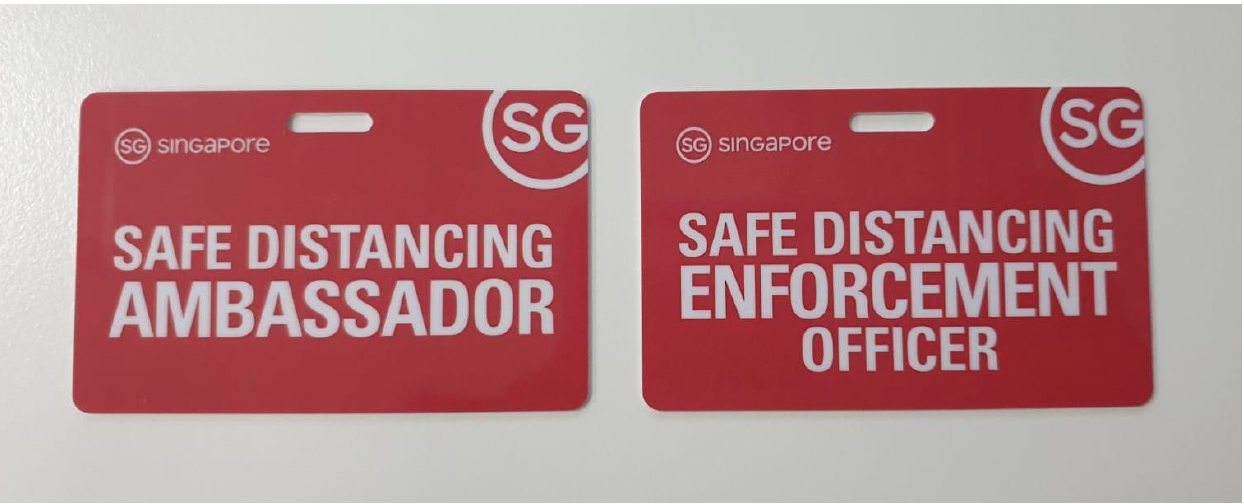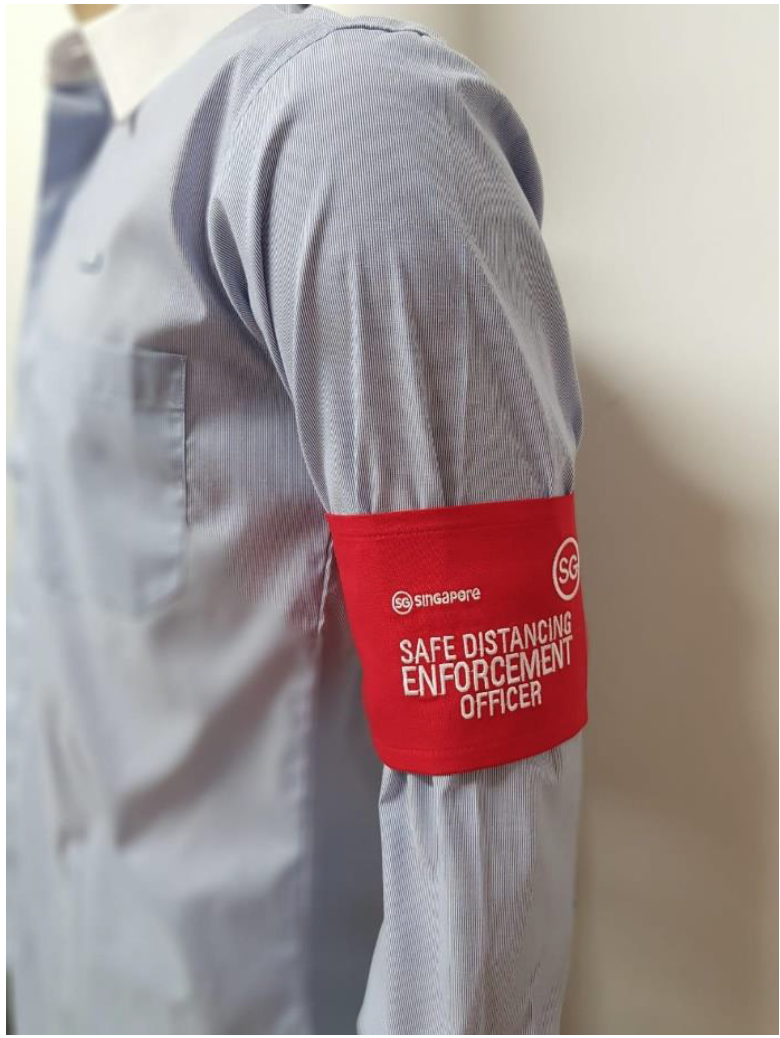Some 3,000 Enforcement Officers (EO) and SG Clean and Safe Distancing Ambassadors have been deployed daily to public spaces in HDB estates across Singapore since Apr. 7.
This was revealed by the Ministry of Environment and Water Resources (MEWR) on Apr. 15.
To help you discern whether the person stopping you is a legitimate officer and not an impersonator, here's what you can look out for to verify that he or she is a legitimate EO or ambassador:
1. The EO/ambassador is wearing cards like these on a lanyard:
 Photo via MEWR
Photo via MEWR
2. A SG Clean Ambassador would be wearing cards like this on a lanyard:
 Photo via MEWR
Photo via MEWR
3. An EO can also wear an armband that looks like this:
 Photo via MEWR
Photo via MEWR
Differences between an ambassador and an EO
The main difference is that besides police officers, EOs are the only officers who can take enforcement action by issuing fines against the public for breaches of safe distancing measures.
Ambassadors, on the other hand, help to guide businesses and individuals to comply with safe distancing measures.
Should you somehow be slapped with a fine for breaching safe distancing measures, here's what you should take note as well:
- Notices for fines will be issued to you in hard copy either on site, or through snail mail.
- EOs are not allowed, and would never ask you, to pay any fine that is issued to you on the spot.
- Do not hand over any cash or provide your bank account details to anyone who claims to be an EO.
- Always request to see identification from an EO before complying with his/ her instructions.
Under the Penal Code, the offence of cheating by personation carries an imprisonment term which may extend to five years, or a fine, or both.
The offence of personating a public servant carries an imprisonment term which may extend to two years, or a fine, or both.
Top image via MEWR
If you like what you read, follow us on Facebook, Instagram, Twitter and Telegram to get the latest updates.
